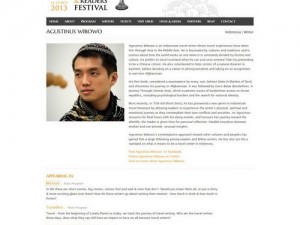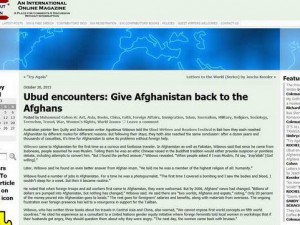[Audio] UWRF13: Reflections of Afghanistan
Ubud Writers and Readers Festival 2013 Reflections of Afghanistan : Ben Quilty, Agustinus Wibowo & Michael Vatikiotis Forgotten wars & forgotten people. Hear from two individuals who have made the journey to Afghanistan to record the lives of the people there through their images. What does it look like through their eyes? Indus, 15 October 2013 http://www.ubudwritersfestival.com/audio/reflections-of-afghanistan-ben-quilty-agustinus-wibowo-michael-vatikiotis/ Featuring: Ben Quilty Ben Quilty has been widely recognised for his artwork. Quilty’s paintings of his Holden Torana produced a sell-out show in 2002 and since then his work has been seen in many exhibits and art fairs. Some of his work can be seen at the Art Gallery of New South Wales and the Museum of Contemporary Art. Quilty won the Doug Moran Portrait Prize in 2009 for his painting Jimmy Barnes, ‘There but for the Grace of God Go I, no.2′. In the same year Quilty was named runner up in the Archibald Prize [read more]


